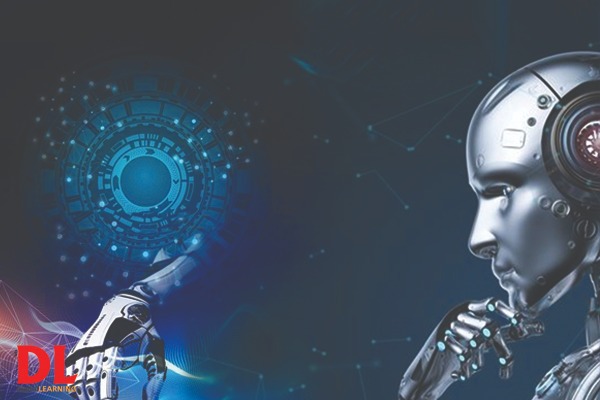
Artificial Intelligence (AI) has gained significant traction in the education sector in recent years. AI-powered applications such as Chatbots, Natural Language Processing (NLP), and Machine Learning (ML) have found applications in diverse areas of the education sector. One such emerging example of AI tools in the education sector is ChatGPT (Generative Pre-Trained Transformer). Developed by OpenAI (An AI research laboratory operating in the United States, to advance the development of friendly AI and promote its growth. The organisation was established in San Francisco in 2015 by several individuals, including Sam Altman, Reid Hoffman, Jessica Livingston, Elon Musk, Ilya Sutskever, Peter Thiel, and others, who collectively pledged $1 billion towards its mission. In 2019, Microsoft invested $1 billion in OpenAI LP, and in January 2023, the company made a second multi-year investment of $10 billion), ChatGPT is an advanced language model that can generate text that closely resembles human writing.
With the growing demand for e-learning, ChatGPT has emerged as a powerful tool for generating content, answering student queries, and grading assignments. It can handle a vast number of text-generating tasks, including writing essays, reports, and summaries. The advanced capabilities of ChatGPT have been applied to develop several educational applications that have transformed the traditional learning experience for students.
One of the most significant benefits of using ChatGPT in the education sector is personalised learning. With the ability to adapt to individual student needs and learning styles, ChatGPT can curate specific content that caters to the student’s specific learning requirements. This approach has been particularly effective in providing remedial support to students who struggle with specific concepts or subject areas.
ChatGPT at its peak
Microsoft just announced a massive acquisition of Open AI, the developers of Chat GPT. The investment demonstrates the technology’s potential, and we will most certainly see even more use cases for Chat GPT in the near future, as stated by Bill Gates.
Several popular social media platforms/services, such as Instagram, Spotify, and Dropbox, have also reached one million users, but it took them longer. Instagram reached this significant milestone in just 2.5 months. Similarly, services like Spotify and Dropbox reached one million users in five and seven months, respectively.
Netflix took nearly three years after its launch in 1999 to achieve the status that ChatGPT has achieved in just five days. This demonstrates how much faster web services can now reach customers than they could 15 years ago. The rise in internet usage has made it simpler for online businesses to reach a wider audience, and ChatGPT is no exception.
Emergence of ChatGPT
ChatGPT has found widespread use in test preparation. Several EdTech companies in India have developed AI-powered Chatbots that use ChatGPT to provide students with real-time feedback on their performance. These Chatbots can interact with students, answer their queries, and provide instant feedback on test results. They can also generate personalised test papers based on the student’s strengths and weaknesses.
Another use-case of ChatGPT in the Indian education sector is in language learning. With India being a multilingual country, language learning is a significant challenge for students. ChatGPT has been used to develop AI-powered language learning applications that can generate custom language exercises and tests. These applications can analyse the student’s progress and provide real-time feedback to help them improve their language skills.
Furthermore, ChatGPT has found use in developing virtual assistants that can interact with students and help them with their learning needs. These virtual assistants can provide personalised support to students, answer their queries, and generate custom learning content. For instance, a virtual assistant powered by ChatGPT can generate summaries of complex texts, explain difficult concepts, and even assist with homework assignments.
ChatGPT has also been used to develop advanced tools for online assessment and evaluation. These tools can analyse large volumes of student data and generate automated reports on their performance. This approach has been particularly useful in evaluating student performance in online courses and MOOCs (Massive Open Online Courses).
Industry Perspective:
Rashmi Singh, Principal, Poddar Brio International School, Badlapur, Maharashtra, said “AI helps streamline the student education process by offering access to suitable courses, bettering communication with tutors, and giving them more time to focus on other life aspects. AI enhances the personalization of student learning programs and courses, promotes tutoring by helping students improve their weak spots and sharpen their skills, ensures quick responses between teachers and students, and enhances universal 24/7 learning access. Educators can use AI for task automation, including administrative work, evaluating learning patterns, and grading papers; AI gives teachers a clear picture of the lessons and subjects requiring reevaluation.
AI gives students a customized learning approach depending on their unique preferences and experiences. Through AI tools, classrooms are now globally available to students, including those with visual or hearing impairments or who use different languages. When many students give the wrong answers to their homework assignments, the system alerts the professor and offers future students customized messages that provide hints to the correct answer. They grade tests, evaluate homework, fill out the needed paperwork, make progress reports, organize lecture resources and materials, manage teaching materials, and more. This means they might spend too much time on non-teaching activities, leaving them overwhelmed.
With the help of automation tools and solutions, educators can automate manual processes giving them more time to concentrate on teaching key competencies. Intelligent tutoring systems, including AI chatbots and tutors, and tutoring programs are designed to handle customized feedback and guidelines for one-on-one teaching. Nonetheless, they can’t replace teachers because they aren’t advanced enough to teach the way humans can. They help in cases where teachers aren’t available for subjects that can be taught and assessed online. Smart content may include digital guides, textbooks, videos, instructional snippets, and AI, which develop customised environments for learning organisations depending on goals and strategies.
I feel AI will enhance the quality of education by personalization in the education sector, which is a future world trend that can be achieved by pinpointing the areas where AI solutions can play a role, she added.
Recent achievements of ChatGPT:
- According to new research released on the medical repository medRxiv, the AI chatbot passed the US Medical Licensing Examination (USMLE). “ChatGPT performed at or near the passing criterion for all three exams without any particular training or reinforcement. Furthermore, ChatGPT displayed a high level of concordance and intelligence in its explanations,” according to the study. It was assured that “none of the answers, explanations, or related content were indexed on Google” before ChatGPT took the test. The AI tool also passed an MBA exam designed by a Wharton professor from the University of Pennsylvania.
- A recent UK graduate wrote an essay using the contentious AI chatbot. According to The Independent, he was surprised to see that he had received passing grades for it. Pieter Snepvangers graduated from the University of Bristol on his own last year. But, after hearing about the buzz surrounding ChatGPT, he decided to see if it might be utilised to complete theory assignments and coursework. He used the bot to write a 2,000-word article about social policy. The bot completed an assignment that students were supposed to complete in 12 weeks in 20 minutes.
- ChatGPT recently passed the Google coding interview for the L3 post. ChatGPT nailed one of the most difficult interviews, earning an annual salary of roughly $183000. This takes the topic back to the jobs that may be challenged by ChatGPT, as well as the question of whether AI can truly eradicate human elements.
- ChatGPT also passed the coding exam for the Amazon interview a few weeks ago, although there were a few faults in ChatGPT’s replies to the company’s coding questions. They were inefficient and had “bugs” in their implementation. According to an Amazon machine learning engineer, ChatGPT was able to provide correct replies and even improve the programmes.
Challenges of ChatGPT:
The use of ChatGPT in the education sector of India is not without its challenges. One significant challenge is the need to ensure that content generated by ChatGPT is of high quality and free from bias. Another challenge is the need to ensure that ChatGPT-based applications do not replace the role of teachers in the learning process. Instead, ChatGPT should be seen as a tool that can support teachers in their teaching endeavours.
ChatGPT is a language model on a large scale that can generate text that resembles human writing, triggered by various inputs or contexts. It can carry out a broad range of tasks involving the creation of natural language, such as completing texts (like emails and reports), rephrasing, summarising, machine translation, and answering questions. Applications based on conversational AI, such as virtual assistants and chatbots, can also leverage its capabilities in appropriate situations. Furthermore, ChatGPT has demonstrated its potential as a code generator, adding another benefit to its use.
The rise of ChatGPT is a wake-up call for colleges to stop neglecting AI technology and embrace the advances it brings to higher education. The following are the most notable trends related to AI influence.
Every second, a new digital tool or technology is created, allowing for new methods of accessing information and completing time-consuming tasks. The capacity to evaluate, assess, and use technology and incoming information effectively, often known as digital literacy, has emerged as a vital skill set for students. As a result, the curriculum must be modified to accommodate digital literacy.
To sum it up
ChatGPT is a watershed moment in technological growth, with far-reaching and significant implications for society.
This AI technology will open up a world of possibilities for individuals, from finance and commerce to education and healthcare, even as it alters certain industries and potentially eliminates certain traditional vocations, such as copywriting, translation, and online tutoring.
Implementing AI in education has the ability to improve learning outcomes, make instruction more dynamic and engaging, and provide students with new options for learning and development. However, it is critical to remember that AI cannot replace human teachers, and that technology should be used to supplement rather than replace the human component of education.
Thus, ChatGPT has emerged as a powerful tool in the education sector of India. Its advanced capabilities have been applied to develop several innovative applications that have transformed the traditional learning experience for students. With the increasing demand for e-learning and personalised learning, the use of ChatGPT is likely to grow in the coming years. However, it is essential to address the challenges associated with its use and ensure that ChatGPT-based applications are developed responsibly and ethically.





















